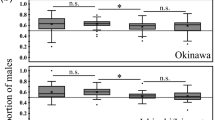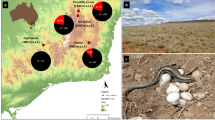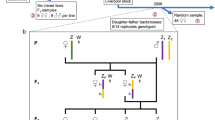Abstract
IN equatorial Africa, the butterfly Acraea encedon occurs chiefly in disturbed habitats in populations that are ecologically and genetically isolated from each other. Many of these populations are composed mainly of females, with males making up as little as 2 per cent1,2. In other parts of Africa, mainly in relatively dry or undisturbed habitats, the sex ratio is normal. There is no evidence of parthenogenesis2. In at least one population (Lubya, Uganda) the very low frequency of males seems to regulate the size of the population; many females remain unmated and contribute nothing to succeeding generations1,2.
This is a preview of subscription content, access via your institution
Access options
Subscribe to this journal
Receive 51 print issues and online access
$199.00 per year
only $3.90 per issue
Buy this article
- Purchase on Springer Link
- Instant access to full article PDF
Prices may be subject to local taxes which are calculated during checkout
Similar content being viewed by others
References
Owen, D. F., and Chanter, D. O., J. Zool., 157, 345 (1969).
Owen, D. F., Heredity, 21, 443 (1966).
Owen, D. F., Nature, 206, 744 (1965).
Hamilton, W. D., Science, 156, 477 (1967).
Author information
Authors and Affiliations
Rights and permissions
About this article
Cite this article
OWEN, D. Inheritance of Sex Ratio in the Butterfly Acraea encedon. Nature 225, 662–663 (1970). https://doi.org/10.1038/225662a0
Received:
Issue Date:
DOI: https://doi.org/10.1038/225662a0
This article is cited by
Comments
By submitting a comment you agree to abide by our Terms and Community Guidelines. If you find something abusive or that does not comply with our terms or guidelines please flag it as inappropriate.



